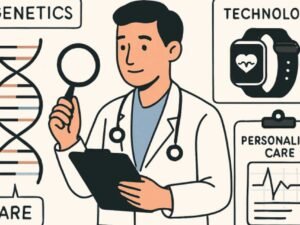Debt is often seen as just a personal or household problem, something that affects only your bank account or credit score. But the truth is, debt’s impact goes much deeper and wider. It ripples through your mental and physical health, your relationships, your work life, and even the community around you. Understanding this ripple effect helps highlight why financial wellness isn’t just about money—it’s about overall well-being. For many struggling with debt, working with debt relief companies offers a way to start healing these interconnected areas and regain balance in life.
How Debt Affects Mental and Emotional Health
One of the clearest and most immediate impacts of debt is on mental health. Carrying the burden of financial obligations can lead to stress, anxiety, and depression. The constant worry about how to make payments or fear of losing assets weighs heavily on the mind.
This mental strain can make it difficult to focus, sleep, or maintain motivation. When debt is overwhelming, it’s common to feel stuck or hopeless. This emotional toll creates a feedback loop where stress affects decision-making, potentially worsening financial problems.
Physical Health Consequences
The stress from debt doesn’t just stay in the mind—it shows up in the body too. Chronic stress raises blood pressure, weakens the immune system, and increases the risk of heart disease. People under financial strain often delay or avoid medical care due to cost concerns, leading to worsening health conditions.
Poor health, in turn, can limit work capacity and income, deepening the financial struggle. This cycle highlights why addressing debt is important not only for your wallet but for your overall health.
Impact on Family Dynamics
Debt can create tension and conflict within families. Financial disagreements are a leading cause of stress in relationships and can lead to breakdowns in communication or trust. When money is tight, everyday decisions become sources of anxiety and disagreement.
Children in families burdened by debt may also feel the effects indirectly through parental stress or reduced resources for education and activities. Fostering open, honest conversations about money helps families support each other and work together toward financial wellness.
Workplace Productivity and Job Stability
Financial stress doesn’t stop at home—it follows people to work. Employees struggling with debt often experience distractions, absenteeism, or reduced productivity. Constant worry about bills or collections can take a mental toll, making it hard to focus on tasks or maintain energy throughout the day.
Employers are beginning to recognize this and some offer financial wellness programs or partner with Debt Relief Companies to support employees. Helping workers manage debt benefits both the individual and the organization by improving morale and reducing turnover.
Community and Economic Implications
Debt and financial wellness ripple out into communities too. High levels of household debt can lead to decreased spending in local businesses, affecting the economy. Financial instability can increase reliance on social services and create cycles of poverty that are difficult to break.
On the positive side, communities that offer resources like financial education and access to Debt Relief Companies can empower residents to improve their financial health, leading to stronger local economies and more vibrant neighborhoods.
Breaking the Cycle Through Financial Wellness
Financial wellness means having control over your finances, feeling secure, and being able to meet your financial goals. Breaking free from the debt cycle requires more than just budgeting—it involves building habits that support long-term stability.
Working with debt relief companies often includes education, counseling, and debt management plans that address the root causes of financial problems and help create sustainable solutions. This comprehensive approach restores balance across all areas of life affected by debt.
Building Support Networks
Addressing debt and improving financial wellness isn’t something you have to do alone. Support from family, friends, and professionals can provide encouragement and guidance. Sharing challenges and progress helps reduce isolation and builds resilience.
debt relief companies often emphasize the importance of building these networks to sustain motivation and provide practical help throughout the journey.
The Role of Mindset and Self-Compassion
Financial wellness also involves mindset. Many people facing debt feel shame or guilt, which can prevent them from seeking help or taking positive steps. Cultivating self-compassion—treating yourself with kindness and understanding—reduces this barrier.
Adopting a growth mindset, where mistakes are seen as learning opportunities rather than failures, encourages persistence and hope. This emotional shift is essential for long-term change.
Final Thoughts
Debt’s impact reaches far beyond the numbers. It affects mental and physical health, relationships, work performance, and communities. Recognizing these ripple effects makes it clear that financial wellness is about much more than just paying bills—it’s about living a balanced, healthy life.
If debt is causing stress and hardship, seeking help from debt relief companies can be a critical step toward healing. With support, education, and practical plans, it’s possible to break the cycle and restore well-being across all areas of your life. Remember, financial wellness creates a foundation for thriving—not just surviving—in every aspect of life.










